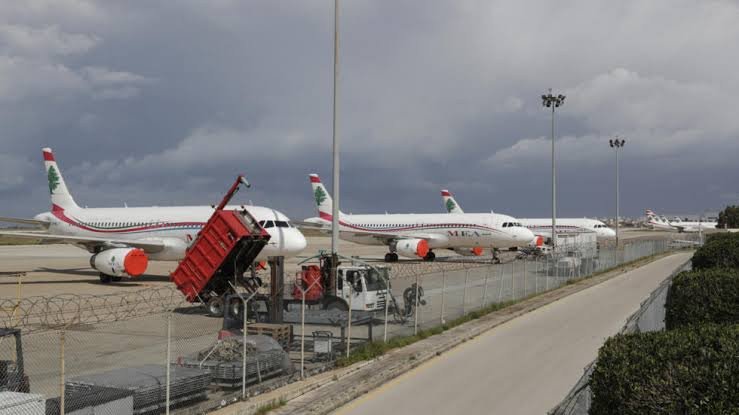Lebanon national carrier halves flights amid fears of Israel war

Lebanon’s national carrier, Middle East Airlines (MEA), announced a significant reduction in its flight operations as ongoing tensions along the border with Israel and recent tit-for-tat incidents have raised concerns of a potential conflict.
Since an attack by Hamas on October 7th ignited hostilities between Israel and Gaza-based militants, the border between Lebanon and Israel has witnessed near-daily incidents involving Lebanon’s Hezbollah and Palestinian groups, including Hamas.
The toll on the Lebanese side has been significant, with at least 22 people killed, including four civilians, leading to growing fears of a broader escalation in the region. Mohammad El-Hout, the Chairman of MEA, confirmed that starting next week, only eight of the airline’s 22 planes will remain operational, with the rest of the fleet being moved to alternative airports.
During a televised interview from Beirut’s airport, Mohammad El-Hout stated, “More than half of the company’s flights will be canceled.” The decision to cut flights was influenced by changes in the company’s insurance coverage in the wake of the October 7th Hamas attack. El-Hout noted that “Insurance companies began to worry two or three days after” the attack, resulting in a reduction in war risk coverage.
MEA is not the only airline affected by the escalating tensions. Swiss International Air Lines and Germany’s Lufthansa have temporarily suspended flights to Beirut. Western nations, including the United States, Britain, France, Australia, Canada, and most recently Belgium, have issued travel advisories urging their citizens to leave Lebanon due to the unpredictable situation.
Belgium’s advisory, for instance, urged its citizens to leave the country promptly, emphasizing the unstable conditions in the region. Israel’s actions, primarily the sustained airstrikes on Gaza since October 7th, have drawn international attention, with over 4,100 Palestinians, mainly civilians, reported as casualties according to Gaza’s Hamas-run health ministry.
As the situation remains fluid, Lebanon’s national carrier’s decision to cut flights underscores the concerns over the potential for a wider conflict in the region. International actors continue to closely monitor developments along the Lebanese-Israeli border.








